The winners of Linda Strachan’s book are….
Julie Booth
Ruth Worthington
Congratulations!
I’ll be emailing the winners later today and posting a copy of Writing for Children to them as soon as the snow melts enough for me to get to the post office!
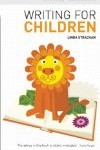
The winners of Linda Strachan’s book are….
Julie Booth
Ruth Worthington
Congratulations!
I’ll be emailing the winners later today and posting a copy of Writing for Children to them as soon as the snow melts enough for me to get to the post office!
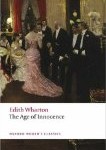
Winner of the 1921 Pulitzer Prize
The Age of Innocence is set in the upper class society of New York City. The book begins with Newland Archer, the heir to one of the best families, eagerly awaiting his marriage to the beautiful, but quiet May Welland. The arrival of May’s cousin, the Countess Ellen Olenska from Europe, leads Newland to question his choice of bride as he finds himself falling for Ellen.
I’m afraid that I didn’t enjoy this book – it annoyed me from the very first page:
But, in the first place, New York was a metropolis, and perfectly aware that in metropolises it was ‘not the thing’ to arrive early at the opera; and what was or was not ‘the thing’ played a part as important in Newland Archer’s New York as the inscrutable totem terrors that had ruled the destinies of his forefathers thousands of years ago.
I just don’t enjoy reading about people whinging – especially when they are among the most priviliedged in society. I found all the characters to be dull and I didn’t care about them at all. They just seemed to go from one non-drama to the next, continually fretting about insignificant things.
There was something about the writing style that I didn’t like. It could have been the overuse of brackets, or the repetition of the word “darling!”, but whatever it was this book wound me up as much as it bored me.
There were a few reasonable sections and the ending was actually one of the better parts of the book, but overall I was very disappointed.
I seem to be alone in disliking this book. Reviewers on Amazon describe it as “a work of beautifully subtle observation and delicacy”, “beautifully written, haunting and evocative” and “deeply moving”. I guess I just like reading about people with real problems, or dilemmas that I might have to face one day. I can only enjoy these lighter romances if they make me laugh and I’m afraid that this book failed to do that.
Recommended to those who enjoy gentle, observational books about those with more money than sense!
![]()
Did you enjoy The Age of Innocence?
Will I enjoy any of her other books?
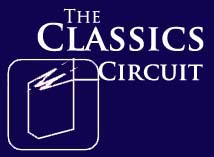 I read The Age of Innocence for the The Classics Circuit. For other Edith Wharton reviews in the month of January, please have a look at the schedule.
I read The Age of Innocence for the The Classics Circuit. For other Edith Wharton reviews in the month of January, please have a look at the schedule.
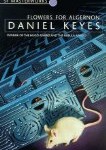
I read 14 books in December giving a total of 144 for the year. I’m quite impressed with that and hope I can read a similar number in 2010.
I was lucky to read two outstanding books in December – Flowers for Algernon and Generation A both managed to gain my highest rating and I hope that you decide to read them, as I’m sure you’ll love them!
Overall the quality of the books I read in December was very high. I’m wondering if I’m noticing a gradual improvement due to book blogger recommendations?
Generation A – Douglas Coupland ![]()
Flowers for Algernon – Daniel Keyes ![]()
Fall on Your Knees – Ann-Marie MacDonald ![]()
Nineteen Eighty-Four (1984) – George Orwell ![]()
The Mosquito Coast – Paul Theroux ![]()
Tender Morsels – Margo Lanagan ![]()
A Redbird Christmas – Fannie Flagg ![]()
The Girl with the Dragon Tattoo – Steig Larsson ![]()
An Equal Stillness – Francesca Kay ![]()
I plan to read a few Orange books this month:
The Little Friend – Donna Tartt
I’m also taking part in Woolf in Winter:
To the Lighthouse – Virginia Woolf (29th January)
I hope to read a few of these other books too:
The Astonishing Life of Octavian Nothing, Traitor to the Nation: v. 1 – M.T. Anderson
The Harlot’s Progress: Pt. 1: Yorkshire Molly – Peter Mottley
The Boat to Redemption – Su Tong
The Woman in the Dunes – Kobo Abe
The Elegance of the Hedgehog – Muriel Barbery
Have you read any of the books that I plan to read in January?
Which one do think I’ll enjoy the most?
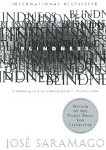
Thanks to recommendations from book bloggers I have read a higher quality of books than ever before. I’ve already posted my list of favourite books published in 2009, but here are the ones I enjoyed reading most, whenever thay happened to be published.
Flowers for Algernon – Daniel Keyes
The Hunger Games – Suzanne Collins
Generation A – Douglas Coupland
.
The Wilderness – Samantha Harvey
Child 44 – Tom Rob Smith (Audio Book)
If you are interested in seeing how I rated other books I’ve read, then please look at my new reviews by rating page.
I have also created a page which shows all my reviews by title, or author surname. You can also find these pages by clicking on the Books Reviewed tab in the top right-hand corner of my blog.
Do you like my new pages?
Have you read any of my favourite books?
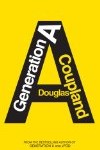
I knew that Steph loved Generation A, but I was completely unprepared for how much I’d enjoy it. I’ve had to prioritise this review so that it can appear on my best reads of 2009 list tomorrow – it is going to come surprisingly near the top!
Generation A is set in the near future, when bees have become extinct. People fondly remember honey, flowers and how much more beautiful the planet was back then, so everyone is surprised when five people across the globe are suddenly stung by bees. The victims are whisked away, quarantined and interrogated to try to determine why they have been stung. The answers are cleverer and more shockingly possible than I could ever imagine. This book shares a scary glimpse of the future which is closer to the truth than we dare to admit.
Douglas Coupland has achieved something which no author has managed before – to engage me in short stories. I have always found them disappointing in the past, but this book contained a series of short stories in the final chapters and each of them had me captivated. I have always heard that writing a good short story is the sign of a talented author, and this book has me convinced that this is true. Each one was impressive in its own right and some were so good that I made family members read them too. My favourite was the one in which beings from another planet eat humans:
One day the lieutenant made the observation that human beings who read large numbers of books tended to taste better than humans who didn’t. This intrigued the commander: “I’m listening, Lieutenant.” “Sir, when the humans read books, it gives them a sense of individuality, a sense of being unique – a sense that something about their existence is special or, as they like to say, ‘magical.’ Reading seems to generate microproteins in their bloodstreams, and those eons give them that extra juicy flavour.”
I was totally gripped by this book, unable to put it down once the setting had been established. The writing was impressive, managing to make me laugh out loud as often as I found myself thinking deeply about our society.
Highly recommended.
![]()
This is the first Douglas Coupland book that I’ve read, but I am going to ensure I get hold of some more of his books soon.
Have you read any of his books?
Which one is your favourite?
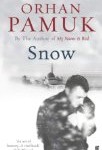
Orhan Pamuk won the Nobel Prize for Literature in 2006
Translated from the Turkish by Maureen Freely
We don’t get much snow in England, so the moment I saw the first few flakes falling I decided it was time to dig this book out of my TBR pile. I am really pleased that I did as this is the perfect read for a cold Winter’s day. The icy atmosphere is prevalent throughout and having a layer of snow outside my window increased my enjoyment of this book.
If he hadn’t been so tired, if he’d paid more attention to the snowflakes swirling out of the sky like feathers, he might have realised that he was travelling straight into a blizzard; he might have seen from the start that he’d set out on a journey that would change his life for ever; he might have turned back.
Snow begins with a poet returning to Turkey after living in exile for twelve years in Germany. He travels to the remote town of Kars, where he poses as a journalist supposedly investigating the large number of suicides that have occurred there recently.
I loved the first third of the book – the character development, plot foreshadowing and snowy atmosphere created the perfect opening. Unfortunately the book went downhill for me in the middle, as it started to focus on politics and religious debate – subjects which I don’t enjoy reading about.
This is a very well written book, with a complex, multi-layered narrative. It used some interesting plot devices, including the introduction of the author, Orhan Pamuk, as a character. I’m sure this is a book which others would enjoy reading again and again.
I noticed many similarities with 2666, so I’m sure that if you enjoyed one book then you’d like the other. I’d love to know if Bolaño had read this before writing 2666, as certain aspects, especially the large number of deaths in a remote town, were very similar.
Overall, I’m really pleased that I read this book and even though my eyes started to glaze over when I read some of political discussion there was more than enough to keep me interested.
I recommend this book to all lovers of literary fiction, particularly those who enjoy political discussion.
Have you read anything written by Orhan Pamuk?